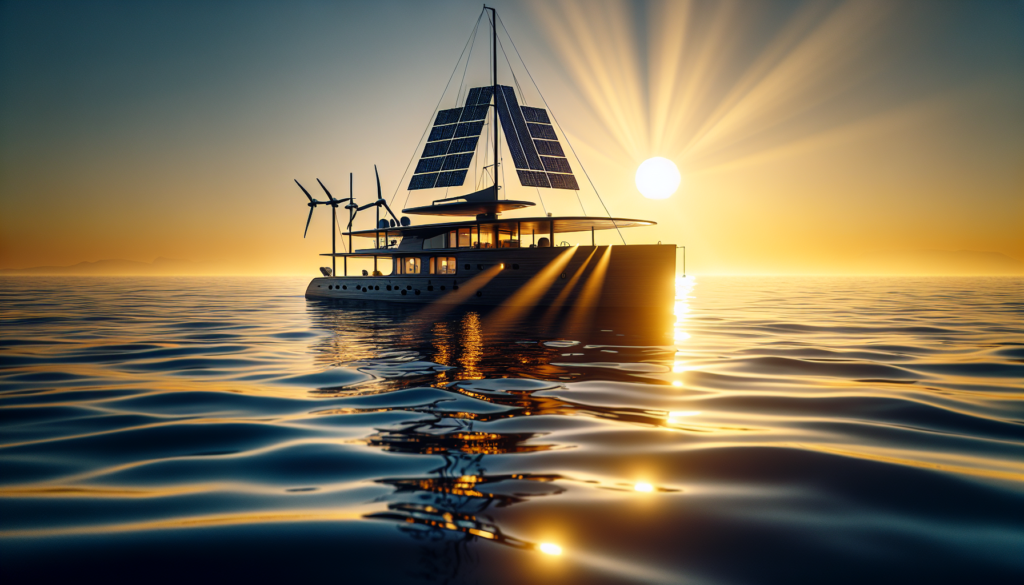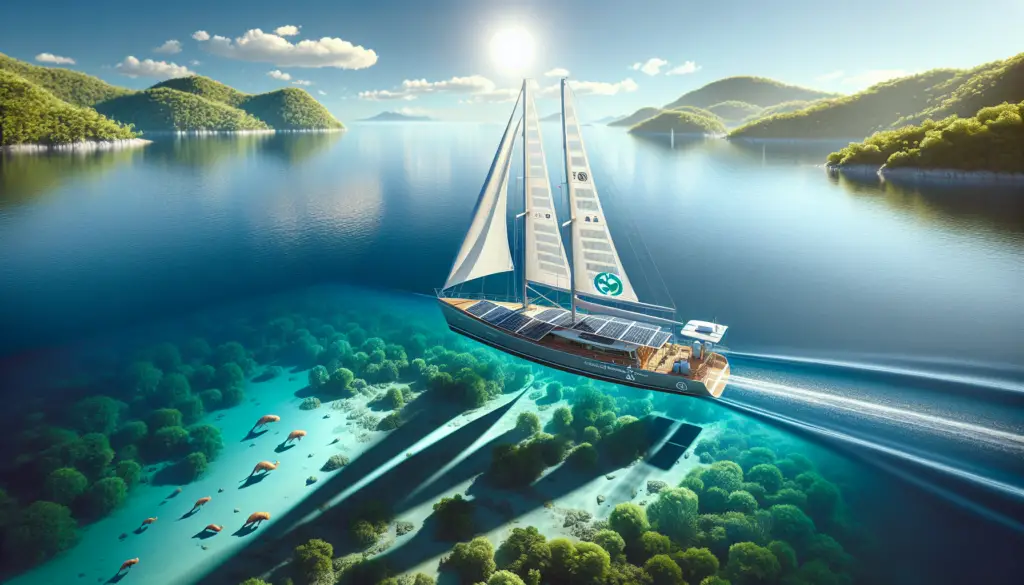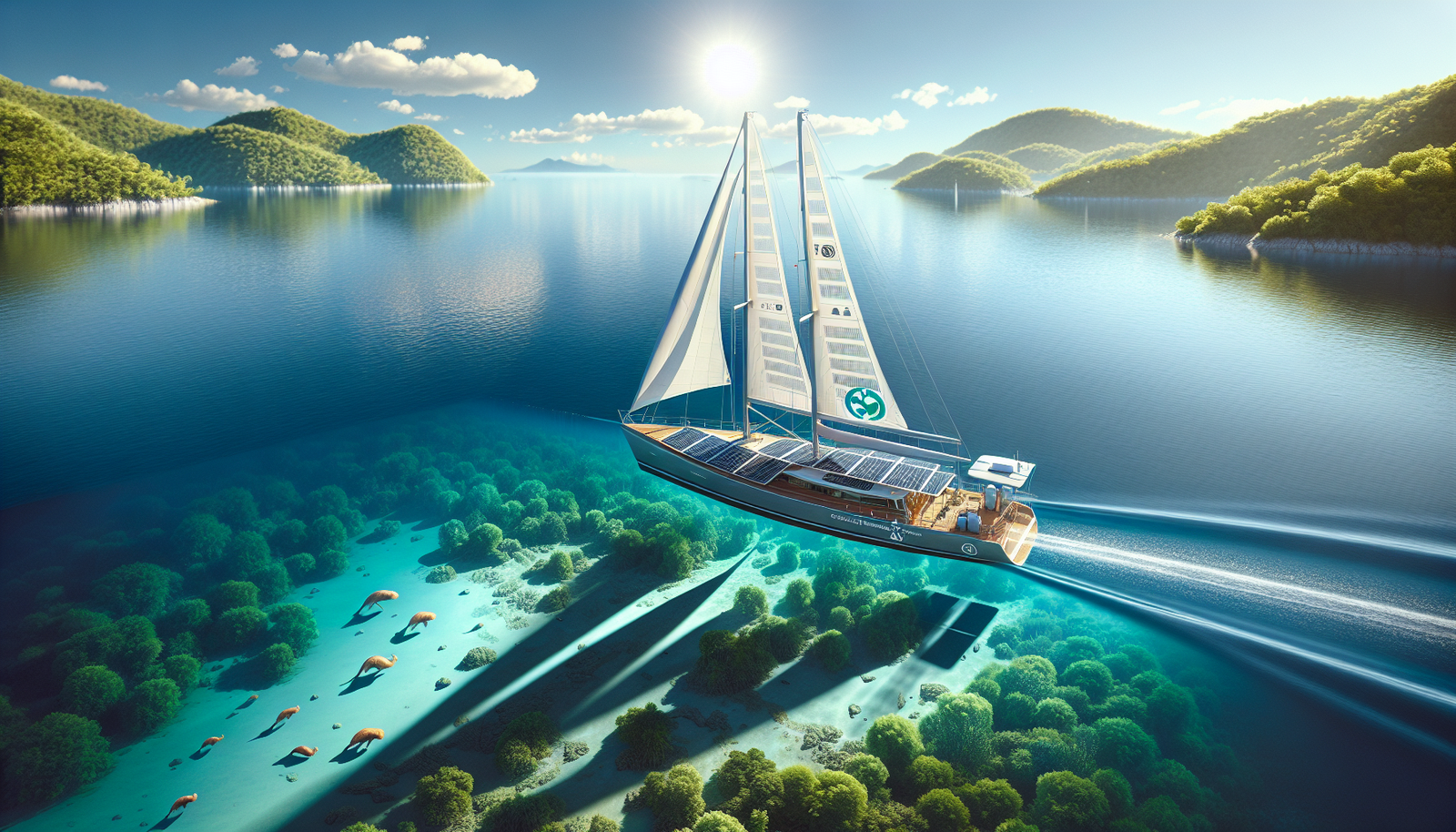Your love for boating could be contributing more than just good times. The environment, the very water you sail upon, could be at risk due to harmful practices. You might not even realize the damage that’s being caused. But don’t worry, there’s a solution! The article “Promoting Environmental Stewardship in Boating” is set to provide a much-needed roadmap for all boat enthusiasts. Here, actionable steps towards preserving the beauty and wellbeing of our shared waterways are discussed. It’s time to take action and become environmentally-friendly boaters to help conserve our waters for generations to come.

Understanding Environmental Stewardship
Definition of Environmental Stewardship
Environmental stewardship is about taking personal responsibility for the preservation of our natural world. It’s the principle of managing and conserving the environment through sustainable practices. The primary goal of environmental stewardship is to protect natural resources and ensure that they can be enjoyed by future generations. In the context of boating, it involves adopting practices that minimize negative impacts on aquatic ecosystems.
Importance of Environmental Stewardship
Today, environmental stewardship is more vital than ever. Whether you’re a boater, angler, or simply someone who enjoys being near or on the water, it’s essential to recognize the importance of maintaining a healthy environment. Without good stewardship, the quality of our water bodies can significantly degrade, negatively affecting wildlife and disrupting ecosystems. As individuals, adopting responsible attitudes towards our natural resources is key to sustain these valuable ecosystems for generations to come.
Role of Individuals in Environmental Stewardship
Individual responsibility is at the heart of environmental stewardship. Each one of us can make a difference, especially when our collective efforts add up. In the realm of boating, this can be as simple as following established guidelines for waste disposal or shopping for eco-friendly cleaning products. Choosing sustainable practices in our boating operations is a practical and significant step in preserving our marine and freshwater environments.
The Impact of Boating on the Environment
Environmental Damage Caused by Boating
Contrary to what many might think, boating can unfortunately lead to significant environmental damage. The physical impact from anchoring, for instance, can lead to substantial damage to marine ecosystems. Anchors can break coral, disturb seabed habitats, and cause loss of vegetation. Additionally, boats can inadvertently introduce invasive species into new environments when organisms attach themselves to the underside of the vessel.
The Carbon Footprint of Boating
Boats, especially those powered by fossil fuels, contribute to greenhouse gas emissions and hence, climate change. Carbon dioxide and other greenhouse gases from boat engines can accumulate in the atmosphere, trapping heat and contributing to global warming. Plus, inefficiently burning fuel can result in air pollutants like nitrogen oxides and particulate matter that degrade air quality.
Marine Life and Boating
Direct disturbance of marine life is another concern often associated with boating. High-speed vessels can strike marine mammals or cause them to change their natural behavior due to noise pollution. Overfishing and abandoned fishing gear also pose significant threats to marine life.
Water Pollution from Boats
Aside from the risk of oil and fuel spills, boats can pollute water in several other ways. Waste water from sinks, showers, and toilets can introduce harmful bacteria into the water. Similarly, the release of cleaning products, paints and other chemicals used on boats can have toxic effects on marine life.

Practices of Environmental Stewardship in Boating
Promoting Clean Boating
Promoting the idea of clean boating is the first step towards sustainable practices in this sector. Clean boating means operating your boat in a manner that reduces your impact on the environment. This includes practices like proper waste management, minimizing boat maintenance activities in the water, and avoiding sensitive marine areas.
Green Boating Practices
Green boating practices involve taking steps to reduce the environmental impact of boating. These can include using eco-friendly cleaners, reducing fuel consumption, and maintaining engines for optimum performance. Additionally, minimizing the use of single-use items and using reusable items wherever possible can greatly help in reducing your boating carbon footprint.
Sustainable Boating Technologies
advancements in technology are making it increasingly possible to reduce the environmental impacts of boating. From electric engines to solar panels, there are a number of technologies that can make your boat more sustainable. Incorporating these technologies into your boating routine is a great way to embrace environmental stewardship.
Implementing Waste Management on Boats
Proper Disposal of Boat Waste
Disposal of boat waste needs to be handled with care to minimize environmental impact. Waste should be collected onboard and disposed of correctly onshore in designated waste facilities. This includes cooking waste, human waste, and any other waste generated on board.
Encouraging Recycling on Boats
Creating a recycling system on your boat can make a significant difference. Start by separating reusable materials like metal, glass, paper, and plastics. These should be collected separately and taken to a recycling facility once you are ashore.
Reducing Single-use Items on Boats
Single-use items generate a lot of waste and are usually not recyclable. These include items like plastic cutlery, plates, cups, and bags. By opting for reusable items instead, you can significantly cut down on waste generation onboard.

Minimizing the Use of Hazardous Substances
Impact of Hazardous Substances on Marine Life
The use of hazardous substances in boating can have devastating effects on marine life. Substances from antifouling paints, cleaning products, and waste can leach into the water and affect the health of aquatic organisms – from microscopic vertebrae to larger marine animals.
Alternatives to Hazardous Substances in Boating
Fortunately, there are alternatives available to hazardous substances commonly used in boating. Eco-friendly cleaners, soaps, and biodegradable products can replace harmful chemicals. Similarly, non-toxic antifouling paints can be used to prevent marine growth on the hull without negatively impacting the ecosystem.
Disposal of Hazardous Substances
Disposal of hazardous substances should always be done responsibly. Never dump them in the water or on land as they can seep into the ground and contaminate water sources. Instead, dispose of them at well-designated facilities.
Encouraging Sustainable Boating Operations
Energy-efficient Boats
Creating and using energy-efficient boats is another critical aspect of environmental stewardship in boating. More manufacturers are designing boats that use less fuel and emit less pollution. Some boats are even designed to rely solely on solar or wind power.
Renewable Energy in Boating
Renewable energy, especially solar and wind, provides a fantastic opportunity for making boating more sustainable. Solar panels can be installed on boats to power electronic devices and maybe even motors. Wind turbines can also be used to produce power on windier days.
Reducing Noise Pollution in Boating
Noise generated by boats can disturb marine life and alter their behavior. Reducing noise pollution is often as simple as slowing down and ensuring your boat is well maintained. Electric motors also make significantly less noise than combustion engines, providing another compelling reason to switch.

Marine Conservation Efforts in Boating
Promoting Marine Protected Areas
marine protected areas (MPAs) play a key role in preserving marine biodiversity. As a responsible boater, it is crucial to respect these areas and adhere to the regulations in place. This may involve restrictions on anchorage, fishing, and other activities.
Boat Cleaning Practices and Marine Life
Responsible boat cleaning practices can protect marine life from hazardous substances. Avoid cleaning your boat in the water or using toxic products. Biodegradable and pH-neutral soaps should be used whenever possible.
Respecting Marine Wildlife
maintaining a safe distance from marine wildlife and avoiding nesting or breeding sites reduces disturbance and protects these creatures from harm. Be aware of their habits and habitats, and make sure your activities do not pose a threat.
Educational Programs for Boaters
Importance of Education in Promoting Environmental Stewardship
Education is the cornerstone of promoting environmental stewardship. By understanding the impact of our actions, we can make better choices and inspire others to do the same. For boaters, this might involve learning about the significance of marine protected areas, understanding the impacts of pollution, or recognizing the value of sustainable practices.
Boating Safety and Environmental Awareness Courses
boating safety and environmental awareness courses can provide valuable information for boaters. These programs typically cover important safety procedures, regulations, and ways to minimize environmental impact.
Community Outreach Programs
Community outreach programs play a significant role in promoting responsible boating. By participating in programs like beach cleanups or educational events, boaters can contribute to preserving their local water bodies and promote environmental stewardship within their community.
Role of Governments and Regulatory Bodies
Enforcing Environmental Laws in Boating
Government and regulatory bodies play a key role in ensuring boating activities do not harm the environment. This is done by enforcing laws and regulations aimed at protecting marine ecosystems from damage and pollution. Failure to comply with these regulations can lead to substantial penalties.
Incentives for Green Boating
Incentives such as tax rebates, grants, or certification programs can encourage more boaters to adopt greener practices. These incentives make opting for eco-friendly equipment or practices more attractive and financially reasonable.
Regulations for Sustainable Boating
Regulations are crucial to ensuring sustainable practices are followed in boating. These may include limits on speed and engine type, restrictions on waste disposal, or rules on anchoring in sensitive areas.
Future of Boating and Environmental Stewardship
Emerging Technologies in Green Boating
The future of green boating looks promising with several emerging technologies making waves. Electric propulsion, for instance, eliminates carbon emissions and noise pollution. Likewise, more renewable energy solutions like efficient solar cells and small, reliable wind turbines are becoming available for boaters.
Long-term Impacts of Environmental Stewardship in Boating
The long-term impacts of practicing environmental stewardship in boating are vast. In addition to preserving marine ecosystems, these efforts could help to mitigate climate change, save endangered species, and maintain the beauty and recreational use of our water bodies for future generations.
Measuring the Success of Environmental Initiatives in Boating
The success of environmental initiatives in boating can be measured in various ways. Reduction in pollution levels, a decrease in invasive species transmission, or increases in marine biodiversity in boating areas can indicate progress. Let’s not forget, every step taken towards more sustainable practices, large or small, is a success in itself.
In conclusion, preserving our beautiful waterways doesn’t have to involve significant sacrifices. With consideration, care, and conscious choices, boating can align with environmental stewardship. It’s all about adopting ‘green’ practices and making them a regular part of our boating habits. From recycling to using renewable energy and everything in between, every action taken counts and adds to the collective efforts towards safeguarding our environment for the future.

